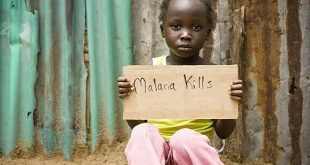
Kampala, Uganda | THE INDEPENDENT | Local and National humanitarian actors in Uganda have been advised to explore local funding options, and invest in the sustainability of institutions instead of relying entirely on donations and grants.
The call follows a report titled “Money Talks; Assessing funding flows to local and national actors in Uganda, which established that local agencies are not benefiting equally from the growth in international humanitarian assistance to Uganda, compared with their international counterparts. The report is a result of a study commissioned by Oxfam and the Comprehensive Refugee Response Framework in Uganda.
According to the report, of the total of 1.8 trillion shillings that came in Uganda as humanitarian assistance both as direct and indirect funding for 2016 and 2017, 1.6 trillion shillings went to International actors working in Uganda, while only 184 billion shillings went to local and national humanitarian actors.
Now local organisations have been told to rethink their funding and approaches, as the world is also shifting its focus on humanitarian assistance. Xavier Ejoyi, the country director of Action Aid Uganda, says that Ugandan NGOs have to focus on developing capacity, staffing, institutional structures, and putting systems in place to make them bigger players.
He explains that unlike international agencies that have developed the capacity to respond swiftly to any emergency that arises like war, indigenous Ugandan organizations cannot respond to half a million refugees in two weeks, providing all the needed humanitarian assistance, due to a lack of robust capacity.
Ejoyi adds that Ugandan NGOs need to start investing in themselves either through recruiting and training more volunteers but also do actual investments. He says this enables an NGO not to solely rely on donor funding because the world is equally going through hard financial times.
Ejoyi also advises local NGOs to initiate local fundraising and funding strategies that will help them keep buoyant when the international support shrinks. He says for-instance that Action Aid is working with the public to raise funds for sanitary pads for girls.
Similarly, the Executive Director National NGO Forum Richard Ssewakiryanga says that several local humanitarian organizations are struggling with earmarked project-based funding. He adds that the ultimate is for local organizations to find their own internal sources and build the logistical infrastructure to respond to local community needs. He explains that dependence on foreign donations is very unsustainable.
The Executive Director of Foundation for Human Rights Initiative (FHRI) Livingston Sewanyana says that international bodies will largely depend on donor priorities, whenever they receive funding and the desired impact will continue to elude Ugandans. According to Sewanyana, the underfunding of local organizations has led them to live from hand to mouth, but also fail to retain qualified staff.
The Oxfam report equally recommended that local and national agencies expand on diversification of the funding base, including local resource mobilization, and consortium bids of established and new national agencies working together.
It added that a long-term goal of strengthening local resourcing for a local response, supported by international resourcing should be a government-driven agenda and that national agencies should continue to innovate in income generation, and include the local private sector in discussions on innovation.
*****
URN
 The Independent Uganda: You get the Truth we Pay the Price
The Independent Uganda: You get the Truth we Pay the Price


